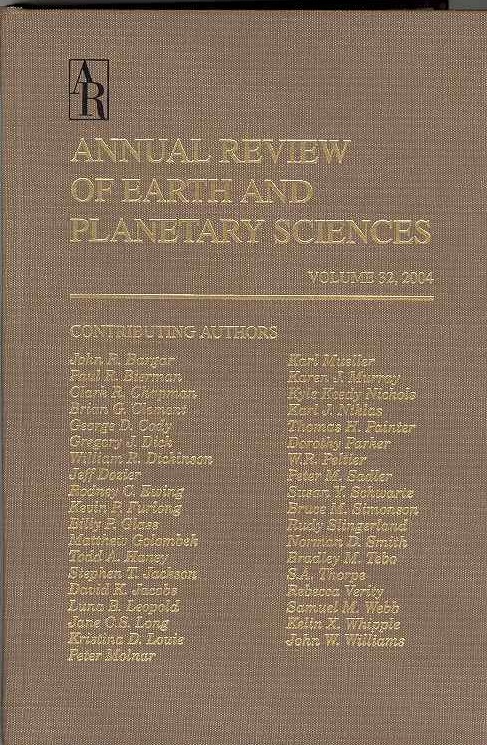二十一世纪拯救文明的科学
IF 13
1区 地球科学
Q1 ASTRONOMY & ASTROPHYSICS
Annual Review of Earth and Planetary Sciences
Pub Date : 2021-10-07
DOI:10.1146/annurev-earth-033021-081125
引用次数: 2
摘要
地球科学家通常处于预测社会面临的自然灾害和拟人灾害挑战的前沿。作为地球科学家,我们在设计解决这些问题的方案以确保我们自己和子孙后代的宜居星球方面并不那么成功,因为解决方案往往在于与其他研究人员建立新的合作伙伴关系,包括工程师、生物学家和社会科学家。在融合科学的旗帜下,这类跨学科的伙伴关系已经在人类健康方面取得了根本性的进步。这些趋同科学原则的应用为应对诸如减缓和适应气候变化、环境健康、保护生态系统服务和推进可持续性科学等挑战提供了重大希望。然而,要严格应用这种方法,将涉及到地球科学在如何教育学生、如何奖励研究人员以及如何资助项目方面的文化变革。▪地球科学家需要与生命、物理和社会科学家以及工程师合作,以解决我们这个时代的问题。▪大学需要解决进行融合研究的财政、程序、教育和文化障碍。▪对重大环境问题采取解决方案导向,有助于吸引更多样化的地球科学工作人员。▪缓解气候变化将受益于地球科学家和社会科学家之间的伙伴关系,使正确的行为变得容易。▪目前地球科学教育、研究和伙伴关系的进程不足以解决可持续性问题。▪确保环境卫生需要卫生、环境、基础设施和经济专家之间的协作。《地球与行星科学年度评论》第50卷的最终在线出版日期预计为2022年5月。修订后的估计数请参阅http://www.annualreviews.org/page/journal/pubdates。本文章由计算机程序翻译,如有差异,请以英文原文为准。
Civilization-Saving Science for the Twenty-First Century
Geoscientists have generally been at the leading edge of predicting the challenges society faces from hazards both natural and anthropomorphic. As geoscientists, we have been less successful in devising the solutions to those problems to ensure a habitable planet for ourselves and future generations because often the solutions lie in creating novel partnerships with other researchers, including engineers, biologists, and social scientists. These sorts of transdisciplinary partnerships have been leading to radical advances in human health, under the banner of convergence science. Application of these principles of convergence science offers significant promise for addressing challenges such as climate change mitigation and adaptation, environmental health, protecting ecosystem services, and advancing sustainability science. To apply this approach rigorously, however, will involve a culture change in the geosciences in terms of how students are educated, how researchers are rewarded, and how projects are funded. ▪ Geoscientists need to work collaboratively with life, physical, and social scientists, as well as engineers, to solve the problems of our time. ▪ Universities need to address financial, procedural, educational, and cultural impediments to the conduct of convergence research. ▪ Adopting a solutions orientation to major environmental issues could help attract a more diverse geoscience workforce. ▪ Climate change mitigation would benefit from partnerships between geoscientists and social scientists to make the right behavior easy. ▪ The current course of Earth science education, research, and partnerships is inadequate to address sustainability. ▪ Ensuring environmental health requires collaboration between experts in health, environment, infrastructure, and economics. Expected final online publication date for the Annual Review of Earth and Planetary Sciences, Volume 50 is May 2022. Please see http://www.annualreviews.org/page/journal/pubdates for revised estimates.
求助全文
通过发布文献求助,成功后即可免费获取论文全文。
去求助
来源期刊

Annual Review of Earth and Planetary Sciences
地学天文-地球科学综合
CiteScore
25.10
自引率
0.00%
发文量
25
期刊介绍:
Since its establishment in 1973, the Annual Review of Earth and Planetary Sciences has been dedicated to providing comprehensive coverage of advancements in the field. This esteemed publication examines various aspects of earth and planetary sciences, encompassing climate, environment, geological hazards, planet formation, and the evolution of life. To ensure wider accessibility, the latest volume of the journal has transitioned from a gated model to open access through the Subscribe to Open program by Annual Reviews. Consequently, all articles published in this volume are now available under the Creative Commons Attribution (CC BY) license.
 求助内容:
求助内容: 应助结果提醒方式:
应助结果提醒方式:


